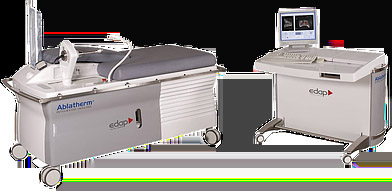Prostate Cancer Q & A
—What Is Prostate Cancer?
Prostate cancer is a condition in which defects in your DNA cause cells in your prostate to grow and multiply at an abnormally rapid rate. It's the most common cancer affecting men today. If a member of your family has prostate cancer, your risk of developing the disease is higher. Other risk factors for prostate cancer include:
Like many other cancers, prostate cancer doesn't cause any noticeable symptoms in its early stages.
|


|
Having routine prostate cancer screenings, such as having your prostate-specific antigen (PSA) levels checked, is often the only way to diagnose the disease in its early and more easily treated stages. However, if passing urine becomes challenging or you begin to experience erectile dysfunction, you should make an appointment to get your prostate checked. In addition to prostate cancer, many other conditions can cause these symptoms, so don't panic. Our team can help you find answers and deliver the right treatment for your situation.
—How Is Prostate Cancer Diagnosed?
Prostate cancer diagnosis begins with a simple PSA test. PSA is a protein only produced in your prostate. When your PSA levels are elevated, it indicates a risk of prostate cancer. If you have a low to average risk of prostate cancer, you should have an annual PSA screening starting at the age of 50. If you have an increased risk of prostate cancer, you should start having the screenings at age 40.
If your PSA levels are elevated, the next step is to have a 4Kscore® blood test. The 4Kscore test is a blood test that checks four specific biomarkers to identify your risk of having an aggressive form of prostate cancer. If your 4Kscore is high, your doctor orders a multiparametric MRI to identify the location of your cancer and perform a fusion guided biopsy procedure.
—How Is Prostate Cancer Treated?
The team of expert physicians at North Florida Urology Associates offers a variety of customized treatments to eliminate your prostate cancer. Whenever possible, the doctors prefer to use noninvasive or minimally invasive options that reduce your risk of disruptive side effects such as urinary incontinence and erectile dysfunction.
In addition to prostatectomy and radiation, our doctors offer focal therapies that include:
- High-Intensity Focused Ultrasound (HIFU): HIFU uses ultrasound wave energy to produce high temperatures that target and destroy cancer cells on your prostate. HIFU is extremely precise and an effective method of getting rid of cancer cells without damaging the rest of your prostate. HIFU is an outpatient procedure that takes up to three hours, depending on the size of the tumor.
- Cryosurgery: Cryosurgery uses extremely cold temperatures to treat localized prostate cancer. The treatment is performed while you're under anesthesia and uses ultrasounds to guide the probe into your prostate. This minimally invasive procedure is less likely to cause problems with your urinary tract or disrupt your bowel movements.